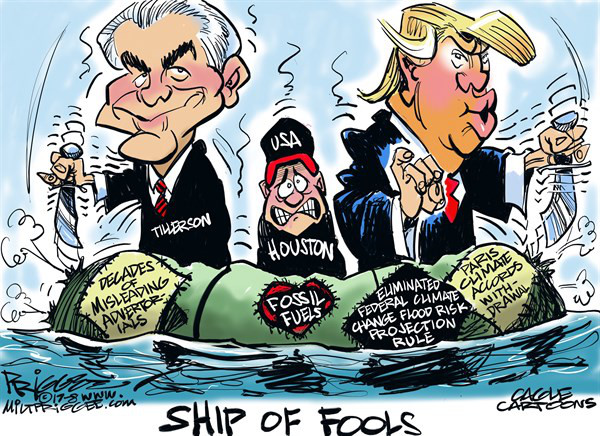Admiring the Ninja Plumbers of California
Our State Is Now the Global Leader in Forward-Thinking Policies

At the recent United Nations meetings on climate change, all the world’s major governments were represented. The chair, the prime minister of Fiji, opened the session by giving the floor to the government that “is now the global leader in enacting forward-thinking policies.” He then invited the representative from the government of California to take the floor. The federal Environmental Protection Agency representative spoke only later, after the delegations from Europe, Asia, and a smattering of Latin American and African countries.
How did California come to lead the nation? As a start, one in nine Americans lives here, drawn perhaps to the open skies, to the sun, palm trees, mountains, and ocean. And despite — or perhaps because of — the natural beauty that surrounds us, California’s workers are among the most productive in the nation. The sum product of our labor is a staggering $2.5 trillion per year. California contributes more to the U.S. gross domestic product than any other state. If it were a country, California would be the fifth largest economy in the world.
And size does matter. When Donald Trump, with his tiny little hands and the stroke of one pen, tried to make good on his campaign promise to loosen automobile emissions standards, he found that due to the great state of California, he couldn’t. Why? Because California answered back, “Fine, you can lower federal standards but that means nothing to us — ours will hold.” Car manufacturers in Detroit scratched their heads at this quagmire and then realized that the lower federal standard would mean nothing to them. It would be cost prohibitive to make cars to two standards, one for California consumers, whom they can’t afford to lose, and one for the rest of the country. So the higher standards held — nationwide. When Donald Trump said he was cutting climate change research funds for the satellites that scientists are sending up to monitor precise changes in air, land, and sea temperatures, the governor of California said, in so many words, “No worries, bozo. We’ll send up the satellites.” Jerry Brown can say that because he has deep pockets. Funded by Californians, the annual state budget of $170 billion is more than that of many entire countries, including Indonesia and Denmark.
California’s success is attributable to more than hard work. Californians also work smart and think forward — they are innovators. Driverless cars, Tesla, and the hyper-loop are all coming to you, thanks to the wide-open minds of those dwelling in the light. But there is a further trait about the West Coast that is as exquisite as it is profound — a trait that is entirely missing from our leadership in Washington, D.C., these days. Californians excel at what they do, yet they accomplish this without taking themselves too seriously.
An East Coaster will introduce herself to you by asking what you do — and always mean what you do professionally. Then she will tell you what she does. And with this information you will each refer to a mental map that places you in the hierarchy and your respective places within it: banker, professor, lobbyist, lawyer. In California, people don’t ask what you do. They may ask how you are; they may ask where you live; they may ask a whole host of other questions. Or if they ask what you do, they more generally mean, “Do you bike; do you hike; do you sing, or paint?” But they can know you for six months before inquiring what you do professionally. You may be a professor, but you may be a plumber, and either way, as they say, “That’s cool.”
And speaking of plumbers, one day I hope you catch a glimpse of the truck owned by the “Ninja Plumbing” company. You will wonder how it got its name and why there are scary black ninjas painted on the body of the vehicle. Then you will see the slogan emblazoned across the back of the truck: “S#it’s about to go down.” And you will shake your head, smile, and realize again the gift of being one of the lucky one in nine Americans living in that most golden of states, where hardworking Americans, from plumbers on up, know the power and the glory that come from the ability to laugh, most especially at oneself. So yes, Donald Trump: S#it’s about to go down — fast.
Gillette Hall is a former professor of international economics and development at the Georgetown University School of Foreign Service. She and her family recently relocated from Washington, D.C., to Santa Barbara, where she continues her work as a consultant.



